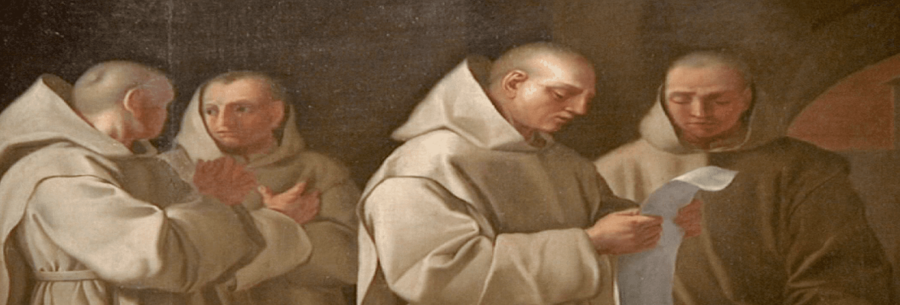Birth of Saint Bruno:
Bruno was born around 1030 in Cologne, Germany, into a noble family. He received a solid education and became a professor of theology at the cathedral school in Reims.
Conversion:
At a certain point in his life, Bruno felt the desire to withdraw from the world to lead a life of deeper prayer and contemplation. He decided to leave his teaching post and retire to the mountains.
Foundation of the Carthusian order:
In 1084, Bruno and six companions built a hermitage in the Chartreuse mountains in France. There they led a life of rigorous asceticism, constant prayer and meditation. Thus was born the Carthusian order, known for its strict observance of the monastic rule and its commitment to solitude and contemplation.
Spiritual influence:
The Carthusian order, founded by Bruno, had a great influence on the development of Western monasticism. Their contemplative life and commitment to silence inspired many other religious orders and helped to strengthen the spiritual life of the Catholic Church.
Death:
Saint Bruno lived in solitude for many years, continuing to teach prayer and meditation to his monks. He died in 1101 in his hermitage in the Chartreuse mountains.
Canonisation:
Saint Bruno was canonised by Pope Leo X in 1514. His feast day is celebrated on 6 October.
The life of Saint Bruno is an example of dedication to prayer, meditation and the search for closeness to God through solitude and renunciation of the world. The Carthusian order he founded still exists today, continuing to live by the principles he established.




















